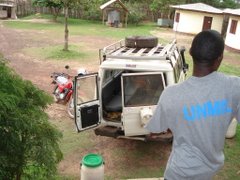What is the proper number of kisses
For a man to leave this world?
The average depth of melancholy?
The approximate wetness of hope?
~ Max Garland
Thingyan, which translates “transit of the Sun from Pisces to Aries” is the Local New Year Water Festival and usually falls around mid-April, the Local month of Tagu. It is celebrated over a period of four to five days culminating in the Local New Year. The days are filled with loud music and truck loads of giddy young people tossing water and singing. The nights are filled with musical performances on stages that sprouted up like weeds overnight in the cracks of a sidewalk. In every neighborhood mandats or stages, with festive names, made from bamboo, wood and beautifully decorated paper mache and merrymaking and general gaiety are the main ticket items, day in and day out.
During the first two days of Thingyan, I saunter the streets of Y and got absolutely soaked by passing celebrators with buckets of water, modern day squirt guns and a keen eye for foreigners. On the third day I stayed in as I discovered I was quite sunburned on every patch of skin I missed applying sun screen to the day before and I was tired of being such an identifiable target. I also knew I would be out all day the following day as a group of my first training participants invited me to an event called Heaven and Hell which was an amusing surprise given I was at that time residing in a majority Buddhist country that finds the idea of heaven and hell to be a bit comical. The plan was they would pick me up at 7 am and we would be out all day dancing, singing and engaging in the collective merrymaking.
Around 6 pm I got the call. There had been a bombing and the location of the explosion was the very stage that we had planned to go to the following day.
According to the news media:
“three bomb blasts rocked a park in M's main city Y on Thursday as thousands of revellers celebrated an annual water festival, leaving nine people dead and at least 75 wounded, officials said. The blasts occurred near Kandawgyi Lake in the military-ruled country's commercial hub, where thousands of people had gathered for water-throwing festivities to mark the Buddhist New Year.
"Nine people were killed -- five men and four women," an official told AFP on condition of anonymity, adding that a fourth bomb was found and defused. State television gave a slightly different toll, saying eight people had died and 94 were injured. The blasts came as the country prepares for elections planned for this year that critics have dismissed as a sham.”
Over the course of the next few days the numbers varied greatly and reports of suggested perpetrators covered the whole continuum from hunches to conspiracy theories.
I missed the event and felt the heaviness of having planned to be in a place that happened to have been bombed 17 hours prior to my arrival but I also felt the hope and collective ability to adjust, regulate and normalize an existence that has rarely in its recent history been delivered to such an oppressed group of people.



















No comments:
Post a Comment